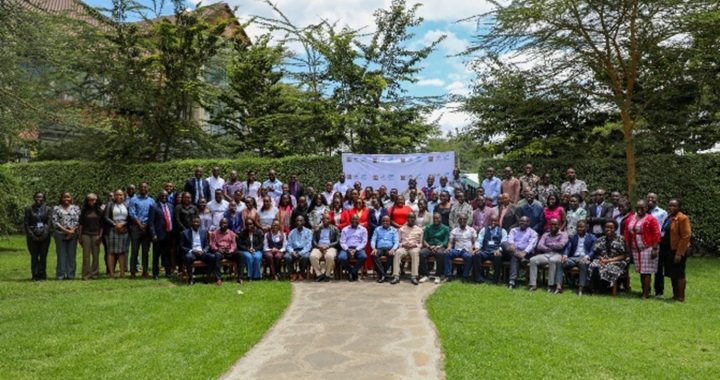KJET trainers have been urged to prioritize practical and learner-centred approaches in rolling out the Business Development Services (BDS) curriculum, as part of efforts to enhance the competitiveness of MSME clusters in Kenya.
The call was made during the Training of Trainers forum, where facilitators emphasized that trainers play a pivotal role in equipping enterprises within the priority value chains of dairy, textiles, edible oils, and construction materials with the skills and knowledge needed to thrive in dynamic markets.
Speaking during the opening session, Mr. Robert Mugambi, the Technical Lead on MSMEs at the Presidential Economic Transformation Secretariat (PETS) alongside Mr. Charles Kemboi reaffirmed the government’s commitment to supporting MSMEs as a cornerstone of the Bottom-Up Economic Transformation Agenda (BETA).


Technical Lead on MSMEs at the Presidential Economic Transformation Secretariat (PETS) Mr. Robert Mugambi, alongside Mr. Charles Kemboi addressing the trainers during the forum
“MSMEs are at the heart of Kenya’s economic transformation. By equipping trainers with practical and learner-focused tools, we are ensuring that enterprises within the priority value chains are not only competitive but also resilient and sustainable contributors to national growth,” said Mr. Robert Mugambi, Technical Lead on MSMEs at the Presidential Economic Transformation Secretariat (PETS).
On behalf of MSEA CEO Mr. Henry Rithaa, Mr. Reynold Njue officially opened the program, reiterating the Authority’s determination to ensure that MSME clusters receive tailored business support to enhance resilience and growth.


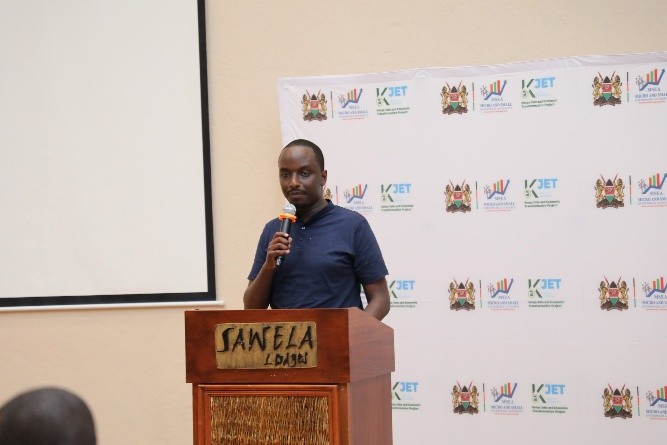
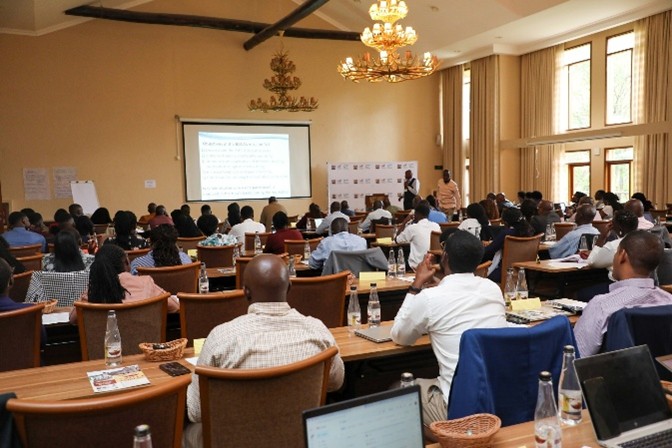
KJET National Project Coordinator, Dr. Tedson Nyongesa, Technical lead KJET Component 2 Mr. Evans Bullut and Ag. Director Strategy and Planning at MSEA addressing the trainers during the forum.
The BDS curriculum provides a comprehensive framework covering key thematic areas such as business planning, financial management, marketing, and innovation. The training began with introductions, climate setting, and adult learning principles, grounding participants in the BDS ecosystem and participatory training approaches. It then progressed into detailed exploration of the modules, where trainers engaged in interactive exercises using the participant’s workbook. These sessions offered practical, hands-on exposure to delivery tools and techniques, effectively preparing trainers to cascade the curriculum to MSME clusters across the country.
Addressing participants, KJET National Project Coordinator, Dr. Tedson Nyongesa, underscored the need for consistency in curriculum delivery, stressing that trainers must view themselves not only as facilitators of knowledge but also as enablers of enterprise growth.
Similarly, Component 2 Coordinator, Mr. Evans Bullut, emphasized that the objective of the project goes beyond training. He called on trainers to equip MSMEs with practical skills that directly improve productivity, sustainability, and competitiveness within their clusters.
At the closing ceremony, MSEA Director General, Mr. Henry Rithaa, lauded the trainers for their commitment throughout the week. He urged them to go beyond classroom teaching and encourage MSMEs to apply their knowledge practically. He highlighted the importance of linking enterprises to markets, finance, cooperatives, and business membership organizations to ensure sustainability. Mr. Rithaa further emphasized inclusivity, professionalism, and collaboration with MSEA officers and stakeholders as key to the success of the rollout.
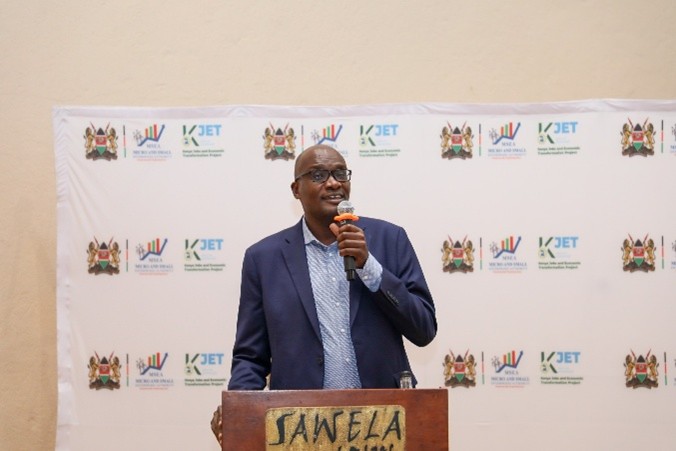
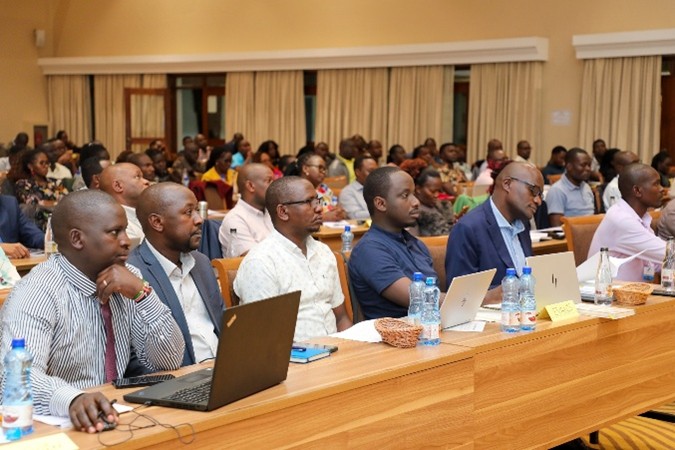
MSEA CEO Mr. Henry Rithaa addressing the trainers during the forum
The completion of this Training of Trainers marks a significant milestone in the implementation of Component 2 of the KJET Project. By building a pool of competent trainers, the program is set to enhance MSME competitiveness, resilience, and job creation within clusters operating along the BETA priority value chains, thereby contributing to Kenya’s broader economic transformation agenda.

